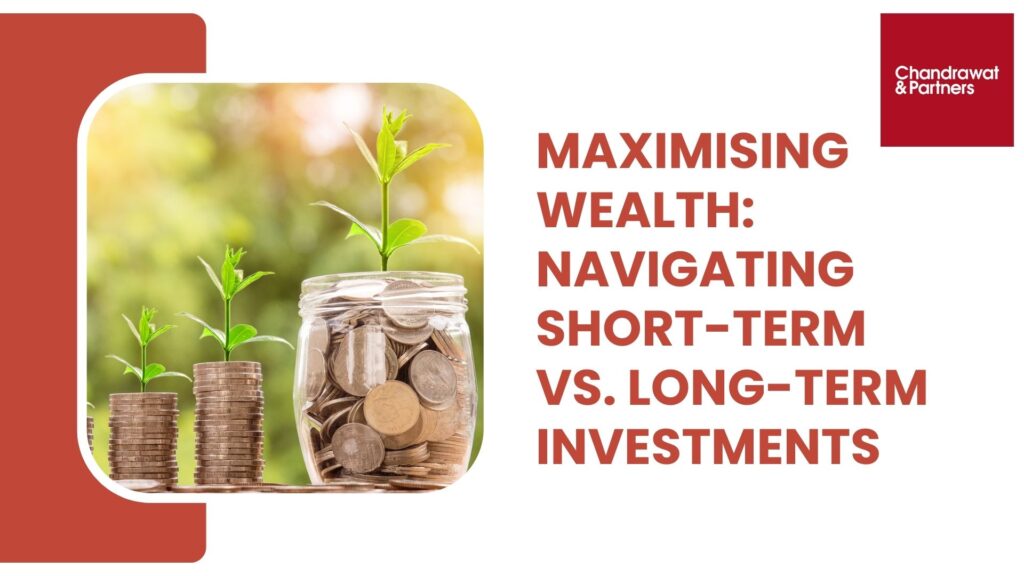Edit Content
Edit Content
Edit Content

Maximizing wealth is a fundamental goal of wealth management. While investing, individuals and institutions are often faced with a critical decision of prioritizing in short-term gains or adopt a long-term investment strategy. Wealth managers understand that balancing these two investment horizons is crucial to meet the unique financial objectives and risk profiles of their clients. By understanding the intricacies of short-term and long-term investment options, investors can make informed decisions that align with their financial aspirations while preserving and growing their wealth effectively.
Short-term investments refer to financial instruments designed to generate returns within a relatively brief period, typically less than a year. These investments are characterized by their liquidity, lower risk, potential for immediate gains, and frequent portfolio turnover. When it comes to short-term investments, there are various options available:
Long-term investments are aimed at accumulating wealth over an extended period, typically more than five years. These investments exhibit characteristics such as the potential for compounding returns, higher risk tolerance, and a focus on capital appreciation. Long-term investments generally have a higher potential for generating significant returns compared to short-term investments. By staying invested in assets such as stocks or real estate over a longer period, one has the opportunity to benefit from the compounding effect, market growth, and the ability to ride out short-term market fluctuations. Types of long-term investments that are worth considering are:
To maximize wealth and achieve financial objectives, wealth managers must strike a balance between short-term and long-term investments. Some key factors to consider are:
In wealth management, the decision between short-term and long-term investments carries significant implications for achieving financial goals and maximizing wealth. While short-term investments offer liquidity and potential immediate gains, long-term investments focus on compounding returns and wealth accumulation over time. Striking the right balance between short-term and long-term investments, based on individual risk tolerance and financial objectives, is key to effective wealth management. The firm was set up to cater to high-net-worth Individuals, keeping in mind that they require a different kind of financial planning and management. Our services include planning and protection of finances, planning of business and retirement needs, and a host of other services, which help to augment their existing as well as future finances and lifestyle. We combine a strong business approach with a soft touch of personalized attention and dedicated customer care.
For more information or queries, please email us at
[email protected]

Managing Partner
Copyright © Chandrawat & Partners. All Rights Reserved.
Copyright © Chandrawat & Partners. All Rights Reserved.

Chandrawat & Partners stands as a dynamic and rapidly expanding full-service firm, specializing in the delivery of exceptional professional and corporate services to a diverse clientele, both foreign and local. We proudly represent companies and individuals across a wide spectrum of sectors through distinct entities established in various countries worldwide.
ASIA
AFRICA
EUROPE
NORTH AMERICA
SOUTH AMERICA
OCEANIA
Chandrawat & Partners uses cookies to run our site and improve its usability.
By using our site you agree to our use of Cookies.